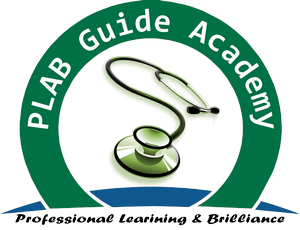Mock 11
Completion requirements
- Picture for Chickenpox station.
- Picture for
- Abdominal examination for intestinal obstruction should be done in the Simman room.
- Breast mannikin (for Lady with breast lump).
- Urine Dipstick for urinalysis.
6. Diarrhoea Following Dog Bite
Patient Prompts
- Mr. Brooks reports, "I’ve had loose stools several times a day since starting the antibiotics, and I’m worried it’s caused by the medication."
- Expresses frustration: "I think the treatment wasn’t right; the antibiotics are making me sick."
Scenario Clinchers
- The patient appears anxious and is seeking reassurance about his treatment.
- Concerned about the ongoing diarrhea and its impact on his daily activities.
Patient Concerns
- Anxious about the diarrhea being a result of the antibiotic treatment.
- Worried that the initial dog bite wound treatment was incorrect or inadequate.
Clinchers and Important Points for the Doctors
- Consider antibiotic-associated diarrhea, a common side effect, particularly if broad-spectrum antibiotics were used.
- Rule out other causes of diarrhea, including Clostridioides difficile infection, especially if the patient presents with severe abdominal pain, fever, or bloody stools.
What Is Expected from the Doctor
- Validate the patient’s concerns and empathize with his discomfort.
- Conduct a thorough assessment, including reviewing the wound site, checking for signs of infection or complications, and evaluating the diarrhea's characteristics.
- Discuss the balance between the benefits of antibiotic therapy for the dog bite and the potential side effects, including diarrhea.
Red Flags
- Signs of severe dehydration (e.g., dry mucous membranes, tachycardia, hypotension).
- Symptoms suggesting a more serious condition, like Clostridioides difficile infection (severe abdominal pain, high fever, bloody diarrhea).
Actions Doctor Should Do
- Reassess the wound for signs of infection or complications.
- Manage the diarrhea symptomatically and consider stool testing if symptoms are severe or persistent.
- Educate the patient on the importance of completing the antibiotic course (if still indicated) and discuss ways to manage side effects.
Referral Needs
- Consider referral to a gastroenterologist if there is suspicion of a severe gastrointestinal condition or if symptoms do not resolve.
- Follow-up with or refer back to a healthcare professional skilled in wound care if there are concerns about the wound healing or infection.
Reason for Referral
- Ensure comprehensive evaluation and management if there are signs of a more serious gastrointestinal issue or if the diarrhea persists despite conservative management.
- To reassess and manage the dog bite wound, ensuring it is healing appropriately and there are no signs of infection or other complications.
